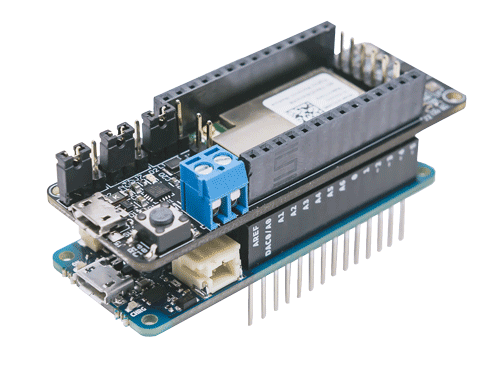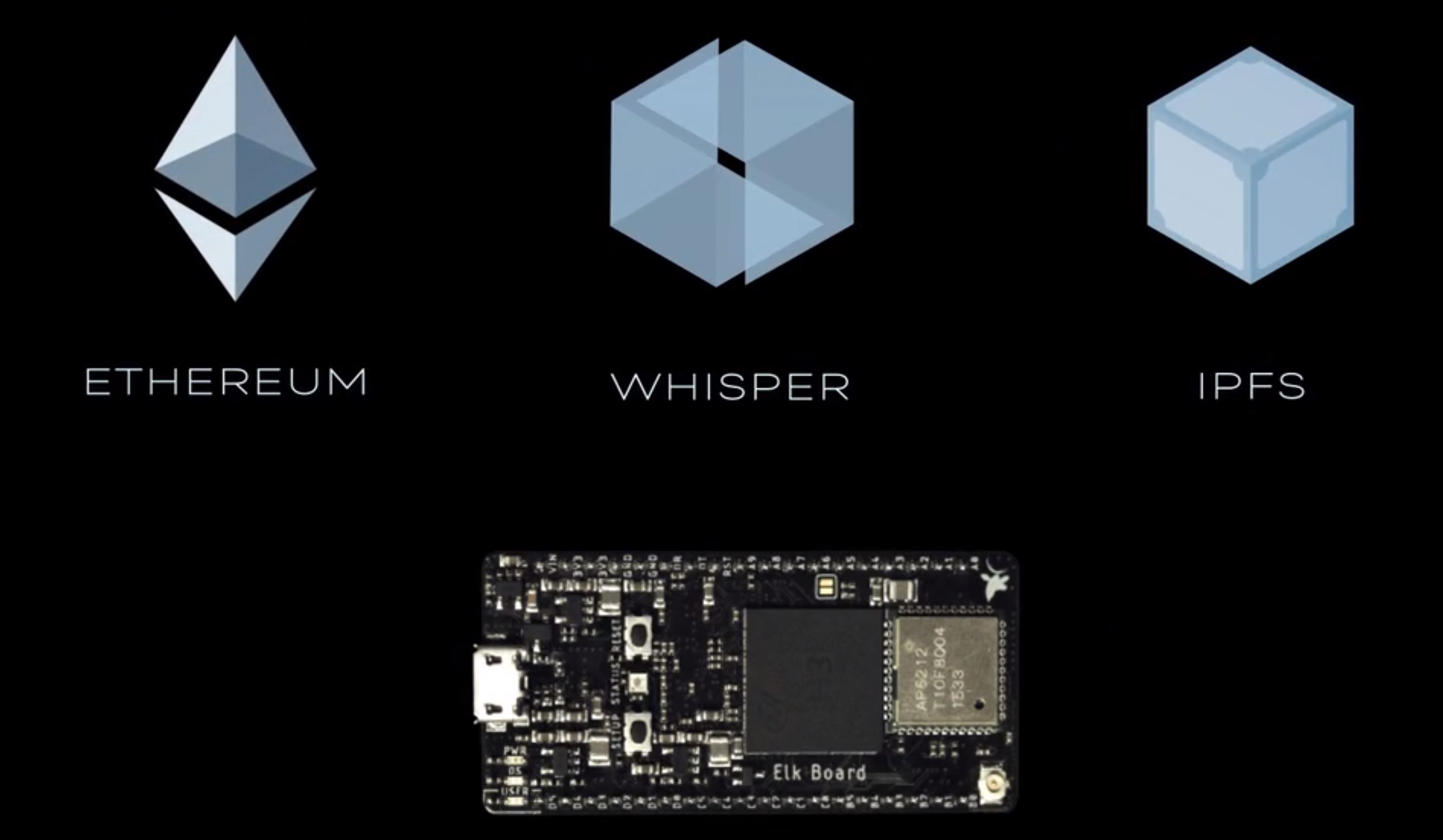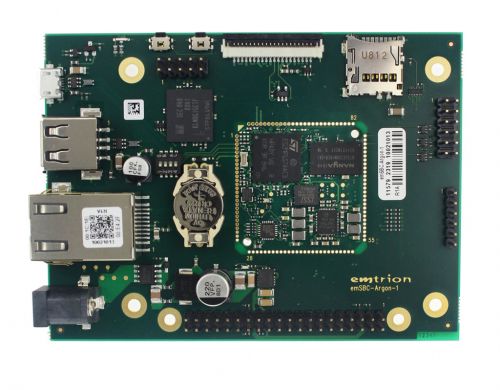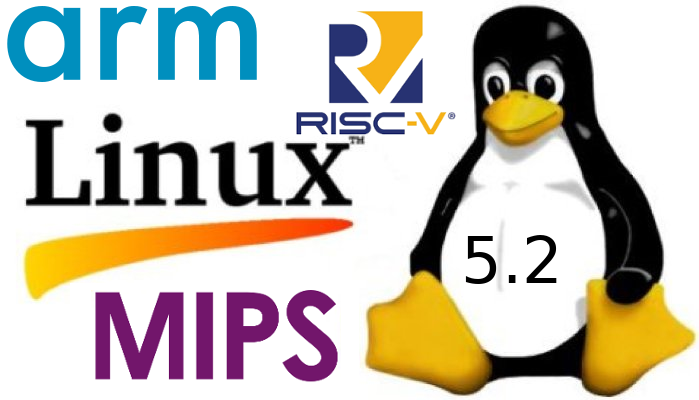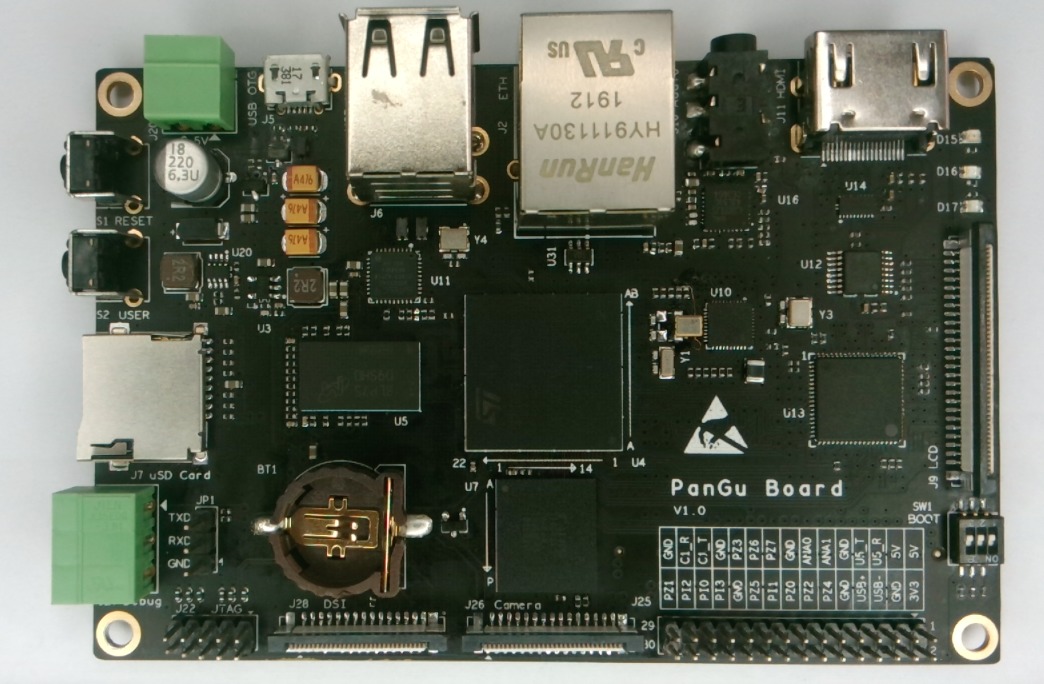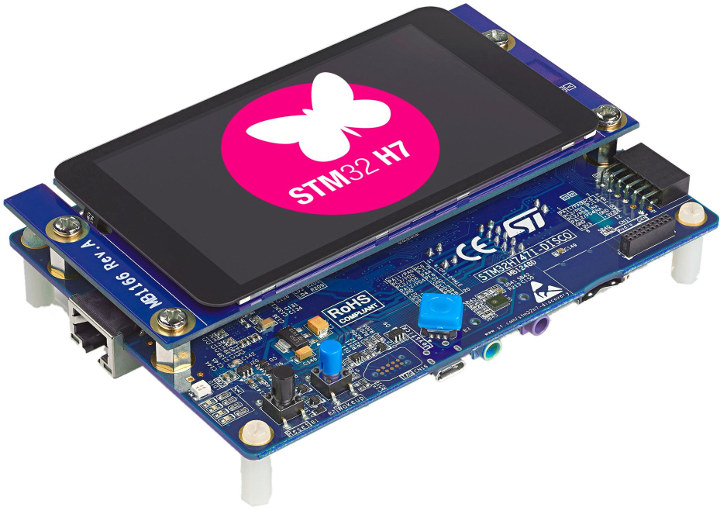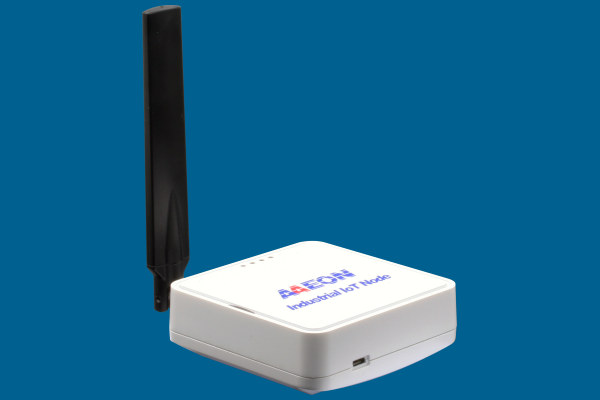Unabiz is an IoT network operator with offices in Singapore and Taiwan. The company offers Sigfox networks in the region, and last year unveiled UnaMKR, a Sigfox Monarch development kit compatible with the tiny Arduino MKR boards. We’ve already written about Sigfox LPWAN standard several times, but what is Sigfox Monarch exactly? Answer direct from Sigfox website: The Monarch feature makes IoT devices aware of the local radio configuration (RC) to use. A single device can thus lawfully communicate on the Sigfox network even when moving between countries with different radio regulations. That means a Sigfox Monarch compliant end-point can work legally anywhere in the world switching to 868 MHz, 902 MHz, and 920 MHz frequencies automatically depending on the country of operation. This is useful for asset tracking across countries and continents. Back to the board itself, with UnaMKR specifications: Platform – Arduino or STMicro Connectivity Lite-On WSG309S Sigfox […]
Elk, An Allwinner H3 Development board Crafted For the Decentralized Internet (Crowdfunding)
Back in 2017, Bitcoin peaked at almost $20,000; many were pretty shocked about how this supposed virtual currency suddenly become a scare resource. It also brought limelight to the technology behind it Blockchain and the idea of Decentralized internet. Although the success of the cryptocurrency didn’t last that long, as it lost about 80 percent in a year and still categorized as one of the biggest bubbles in financial history. After the crash of Bitcoin and some other similar cryptocurrencies, a lot of people predicted that’s the end of the whole Blockchain thing, and the idea of Decentralized internet will not happen. The recently announced Facebook Libra, a new cryptocurrency by the American giant Facebook, shows that Blockchain and the Decentralized web isn’t going anywhere and will probably start growing stronger. Arduino made it possible for Artist, Makers, Engineers, Students to bring ideas to life and quickly make things easier. Now, […]
Emtrion emSBC-Argon Features STM32MP1 Dual Cortex-A7 / M4 Processor
The latest board to use the STM32MP1 dual Cortex-A7 and the Cortex-M4 processor is the Emtrion emSBC-Argon, which adds to SBC’s such as the PanGu Board. The emSBC-Argon, is a powerful yet reasonably priced SBC that is feature-rich and out-of-the-box ready. The low-power needs of the board enable it to run real-time processing. Protocols such as PROFINET, EtherCAT, EtherNet/IP are all available and ready to run real-time processes and communication applications. Key Features: STM32MP157AAC processor from STMicroelectronics Arm Dual Cortex-A7 @ 650MHz – 2470 DMIPS Arm Cortex-M4 @ 200MHz – 250 DMIPS Co-processor: ARM Neon, FPU, and 3D GPU Operating system: Linux or Android Virtualization capable (Jailhouse) Up to 512 MB DDR3L SDRAM 8GByte (up to 64 GB) eMMC Flash Up to 8 MB of QSPI-NOR-Flash 2x FD-CAN 2.0 Dimensions: 104.5 x 77.5 mm The emSBC-Argon is capable of virtualization using Jailhouse, for those real-time functions that require breaking down […]
Arm Techcon 2019 Schedule – Machine Learning, Security, Containers, and More
Arm TechCon will take place on October 8-10, 2019 at San Jose Convention Center to showcase new solutions from Arm and third-parties, and the company has now published the agenda/schedule for the event. There are many sessions and even if you’re not going to happen it’s always useful to checkout what will be discussed to learn more about what’s going on currently and what will be the focus in the near future for Arm development. Several sessions normally occur at the same time, so as usual I’ll make my own virtual schedule with the ones I find most relevant. Tuesday, October 8 09:00 – 09:50 – Open Source ML is rapidly advancing. How can you benefit? by Markus Levy, Director of AI and Machine Learning Technologies, NXP Over the last two years and still continuing, machine learning applications have benefited tremendously from the growing number of open source frameworks, tools, […]
Linux 5.2 Release – Main Changes, Arm, MIPS & RISC-V Architectures
Linus Torvalds announced the release of Linux 5.2 last Sunday: So I was somewhat pre-disposed towards making an rc8, simply because of my travels and being entirely off the internet for a few days last week, and with spotty internet for a few days before that [*]. But there really doesn’t seem to be any reason for another rc, since it’s been very quiet. Yes, I had a few pull requests since rc7, but they were all small, and I had many more that are for the upcoming merge window. Part of it may be due to the July 4th week, of course, but whatever – I’ll take the quiet week as a good sign. So despite a fairly late core revert, I don’t see any real reason for another week of rc, and so we have a v5.2 with the normal release timing. There’s no particular area that stands […]
PanGu Board an SBC Based on the STM32MP1 Processor
The PanGu Board is a single board computer (SBC) that is feature-rich and versatile, at an affordable price point. The board powered by STMicroelectronics STM32MP1 processor was released in February of 2019 and hadn’t really made much a splash in the pool of microprocessors available at the time. The processor is now the main feature of the PanGu Board, an SBC with a host of features and utilizing the Arm dual-core Cortex–A7 MPU and the Cortex-M4 coprocessor to allow for more enhanced multimedia ability and all the heavy real-time processing that users are calling for today. Hardware Features MPU Dual Cortex-A7, 650MHz Cortex-M4, 209Mhz 3D GPU Flash & Memory 16-bit DDR3L, up to 1GByte 8-bit eMMC Flash Quad-SPI NOR Flash Supports Micro SD Audio 3.5mm stereo headphone jack support microphone input Display Parallel RGB LCD interface, the resolution up to WXGA (1366×768) MIPI DSI interface Support for resistive and capacitive […]
STMicro adds Dual-core Cortex-M7/M4 Microcontrollers to STM32H7 Family
STM32H7 is the high-performance family of STMicroelectronics Arm Cortex-M7 microcontroller. So far all STM32H7 MCUs had a single core, but the company has now added dual-core devices (STM32H74x/75x) comprised of an Arm Cortex-M7 core clocked at up to 480 MHz and a Cortex-M4 core clocked at 240MHz. In some way, this part is the little brother of STM32MP1 Arm Cortex-A7 + Cortex-M4 processor, as the new dual-core MCU also targets current products upgrade with the Arm Cortex-M4 core running legacy code, and the more powerful Cortex-M7 aimed at new features such as more sophisticated graphical interfaces, or offloading intensive workloads such as neural networks, checksums, DSP filtering, or audio codecs. Highlights of the new STM32H7 dual-core microcontrollers: Cores Arm Cortex-M7 at 480 MHz Arm Cortex-M4 at 240 MHz 3224 CoreMark / 1327 DMIPS Up to 2MByte Flash and 1Mbyte SRAM on-chip Dual-Bank Flash for seamless firmware updates “New” features MIPI […]
AIOT-ILND01 LoRa Node Comes with AA Battery Holder, Grove Connectors, Optional Enclosure
AAEON specializes in industrial and embedded computing platforms, and usually their products are fairly powerful Windows or Linux based computers, gateways, or network appliances. But in order to provide a complete LoRa solution to system integrators, the company has now introduced AIOT-ILND01 LoRa node powered by STMicro STM32 MCU, and compatible with their AIOT-IP6801IP68 IoT Gateway, as well as other LoRa gateways. AIOT-ILND01 LoRa node specifications: MCU – STMicro STM32L Arm Cortex-M3 MCU @ 32 MHz Connectivity 868MHz/915 MHz LoRa via Semtech SX1276 chipset 1x SMA antenna hole, 1x IPEX antenna hole Sensors – Temperature & humidity sensor, 3-axis accelerometer Expansion – 3x GROVE connectors: 1x UART1 (RS-232/422/485), 1x UART2 (Tx/Rx), 1x I2C Misc – 4x user LEDs, boot select button, 2x user buttons, 1x reset button Debugging – JTAG header Power Supply 5V via micro USB port Battery holder for 2x 14500 rechargeable Lithium-ion battires or AA batteries Dimensions […]


